We are grateful for donations! Donations are tax-exempt in the United States, where Malengo is a 501(c)(3) charity; and in Germany, where Malengo is a non-profit LLC (gGmbH).
If you have questions about donating, or would like to discuss other ways to get involved, please contact Johannes Haushofer [email protected]
Select Payment Method:
Send a check
Malengo Inc.
8 The Green, Ste. 4000
Dover, DE 19901
Transfer to our US account
Please contact us for account details: [email protected]
Transfer to our German account
Malengo gGmbH
Rosenthaler Straße 43-45
10178 Berlin
Germany
Malengo’s origin story
The following is a (slightly edited) Twitter thread about how and why I (Johannes) decided to start Malengo.
Storytime! Here is how and why I switched from working on cash transfers to working on international migration.
In May 2009, I sat on a bench in Harvard square with @PaulFNiehaus. Together with others, he was thinking about setting up a cash transfer charity, which they were calling “GiveDirect”. I was interested in studying the effects of cash transfers on stress. It seemed like a match!
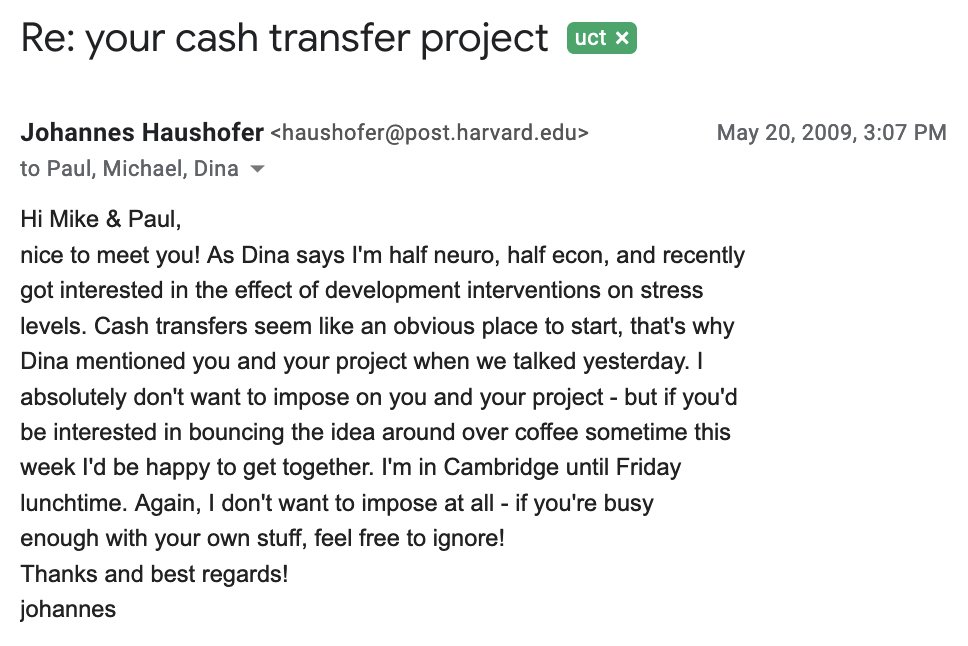
A year later, I had raised some research money from NIH, and Paul et al. had raised the first donations for transfers. (They had also seen the light of grammatical correctness and were now called @GiveDirectly.) So we decided to run the first randomized evaluation of the program.
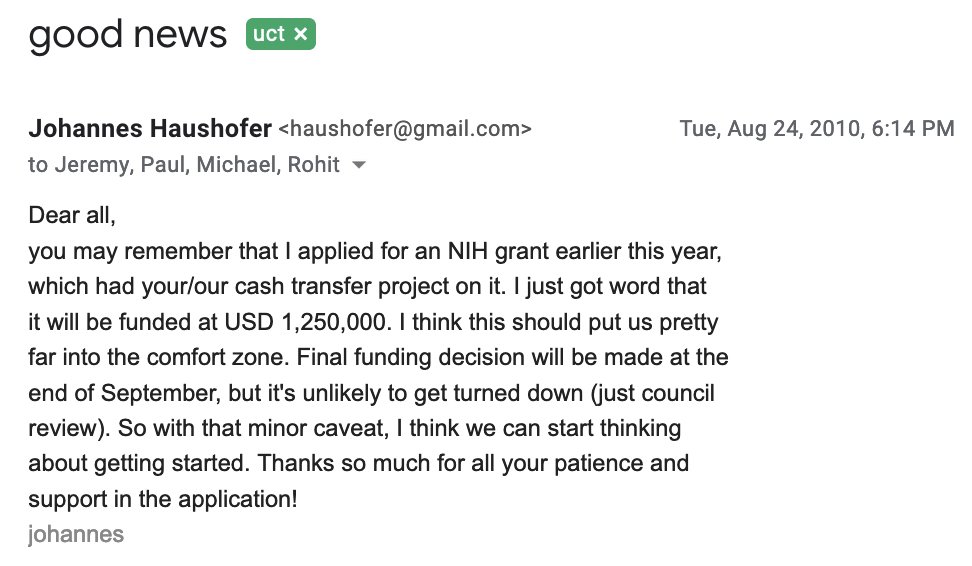
Over the next six years, with @jeremypshapiro, many fantastic RAs, and the @GiveDirectly team, we worked hard on this study. Results were encouraging: consumption increased by 23% (but not alcohol & tobacco), people invested more and were less stressed. Many other studies, both before ours and after, showed similar impacts.
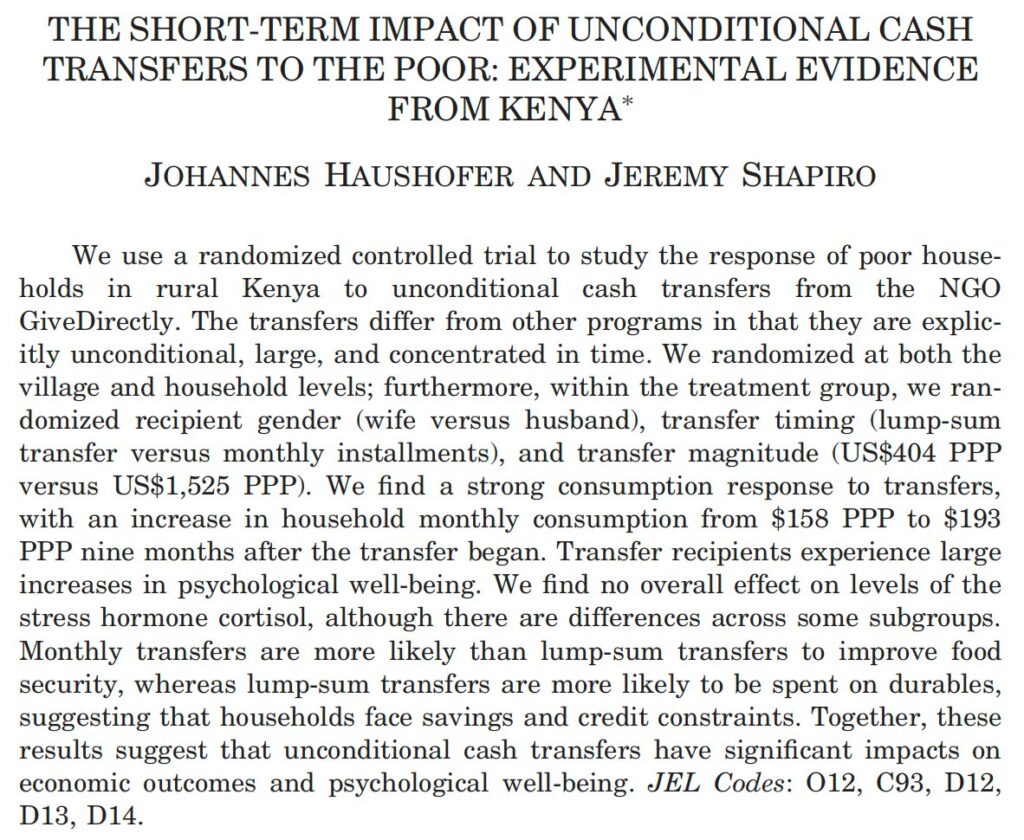
So cash is pretty good! @GiveWell first wrote about @GiveDirectly in 2011, came to visit in 2012, and made @GiveDirectly a top charity soon after. (Pictures from the visit: photos.google.com/share/AF1QipMH…)
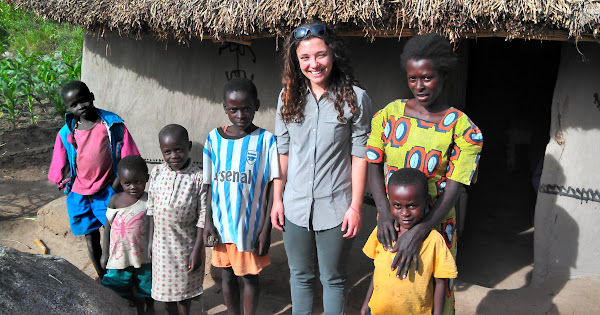
Recent work has continued to show the virtues of cash: there are substantial general equilibrium effects, and providing a longer-term basic income seems to increase profits massively.
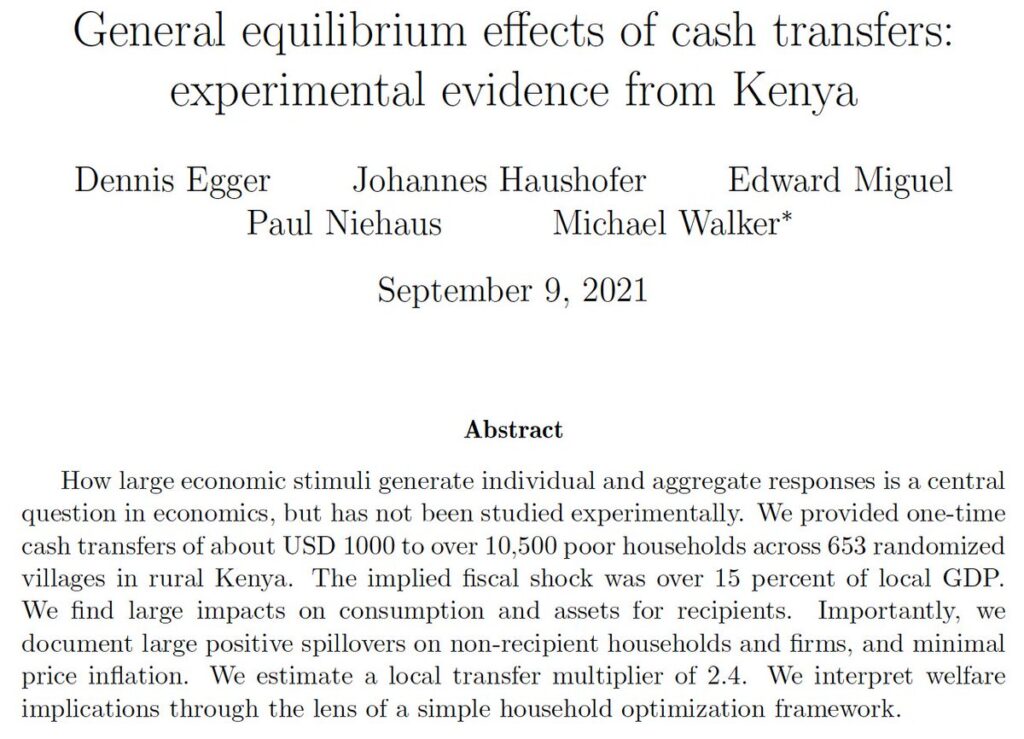
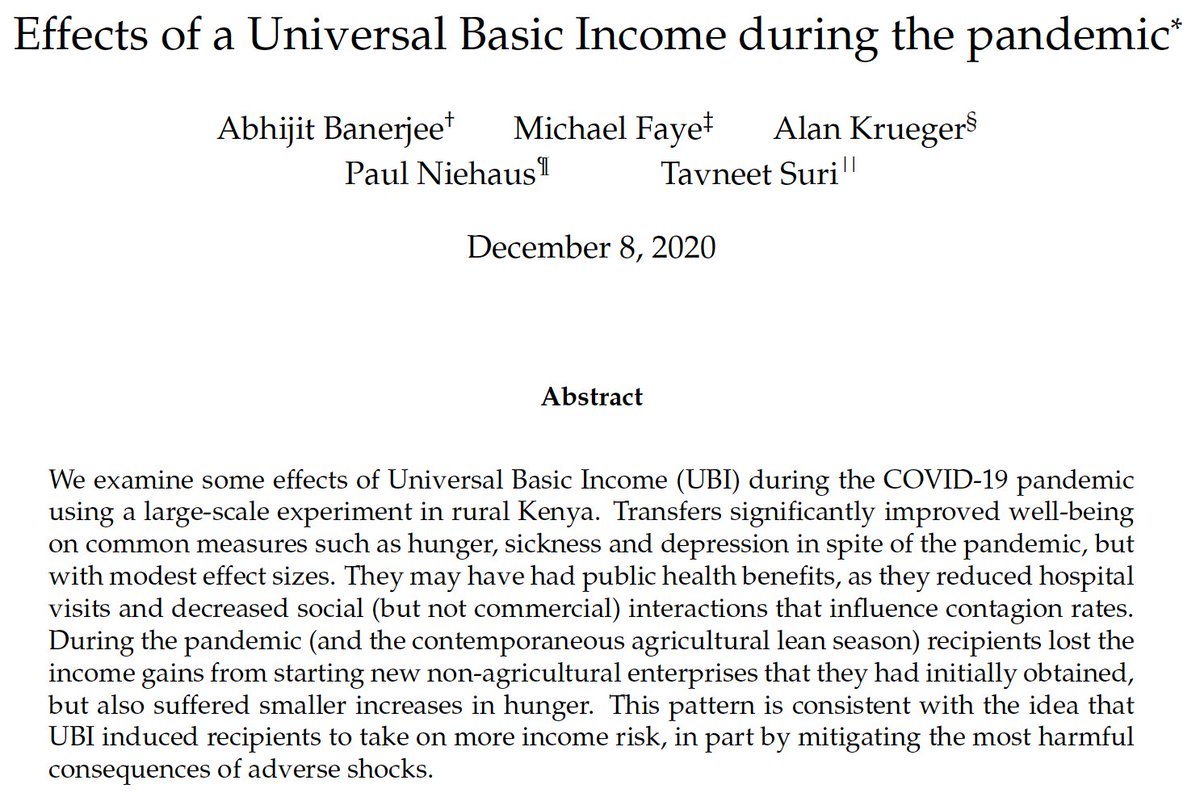
But I have two misgivings about cash: first, the impacts are not transformative. People go from dollar-a-day poverty to perhaps $1.20 or $1.30. That’s not the kind of change I want. I want people to have middle-class European incomes! Second, the impacts seem to be short-lived; several papers now suggest this, at least on average. (Some interesting caveats though; for example, big asset transfers seem to put some households on a longer-term growth trajectory.)
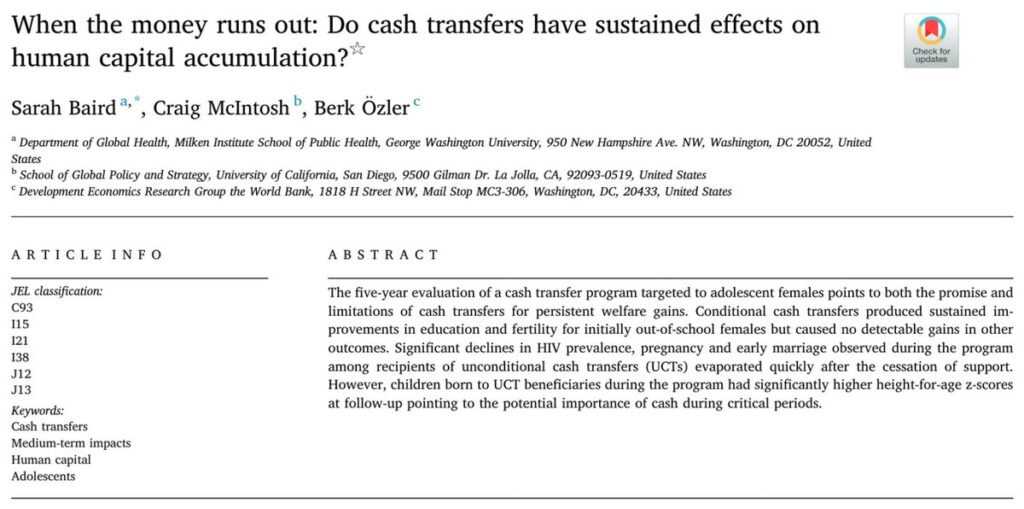
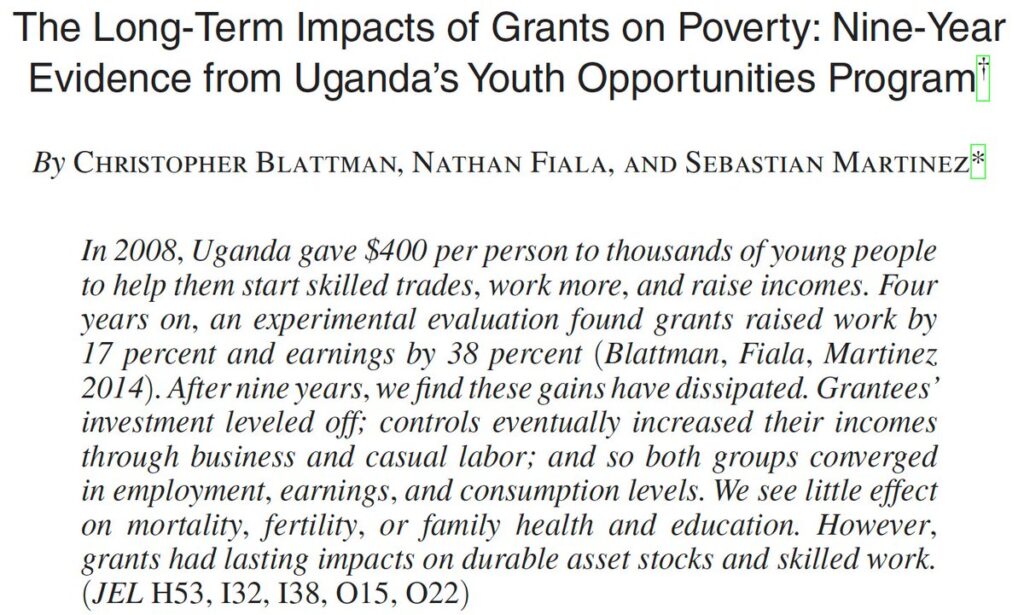
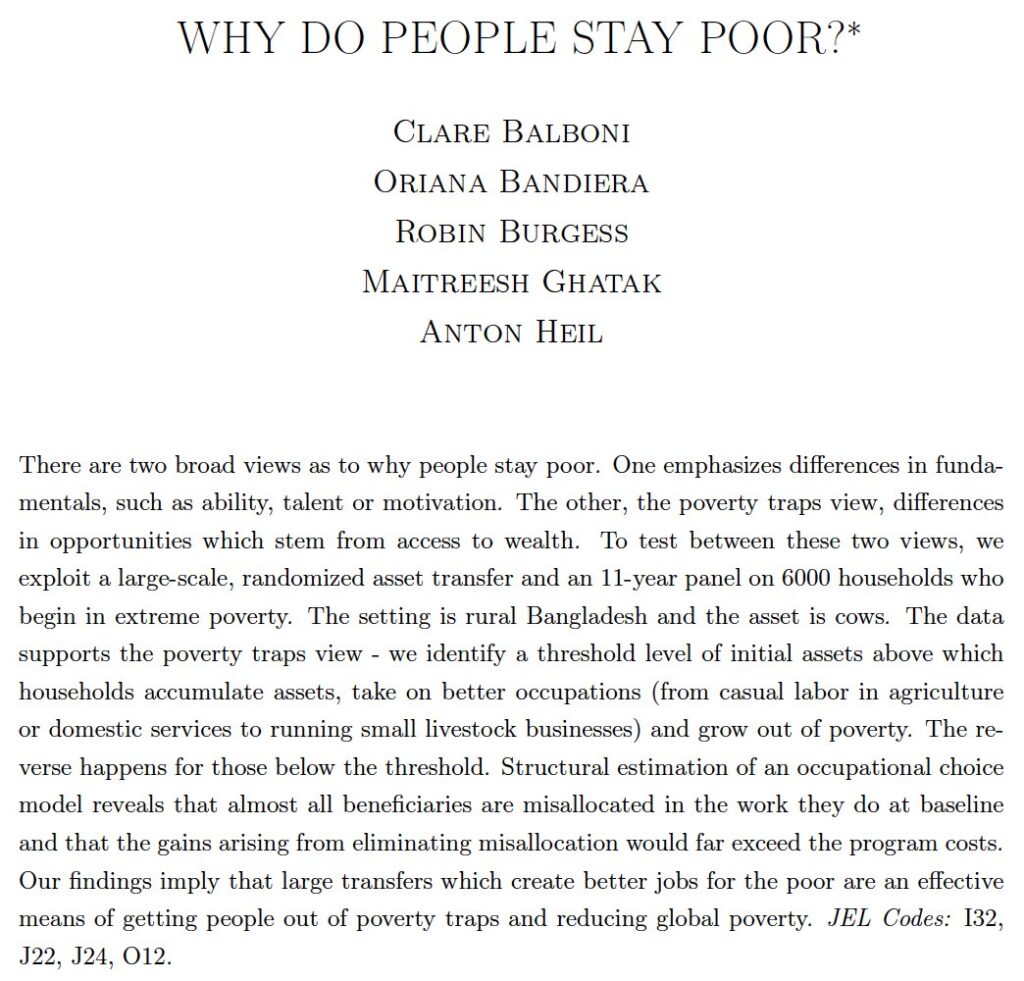
So cash is great. But it’s also disappointing.
So what *are* the interventions that have transformative & lasting effects? My move to @SU_Economics was a good opportunity to think about this.
My answer is that it’s hard to beat the returns to international migration. I mean, look at these numbers from @m_clem, @dmckenzie001 et al.!
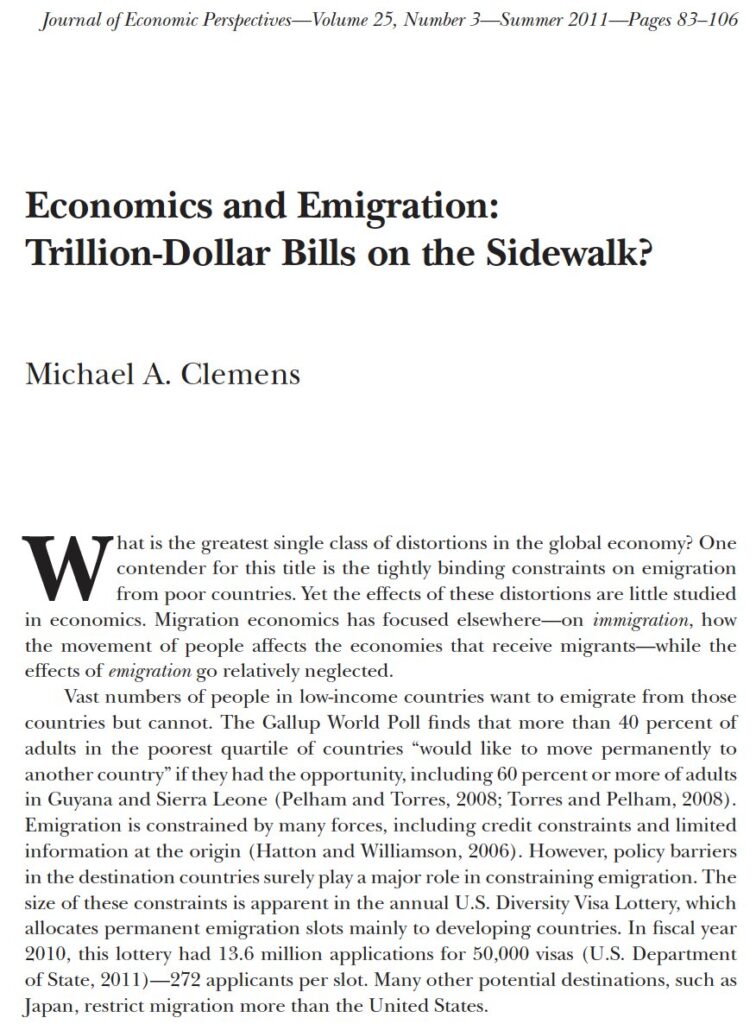
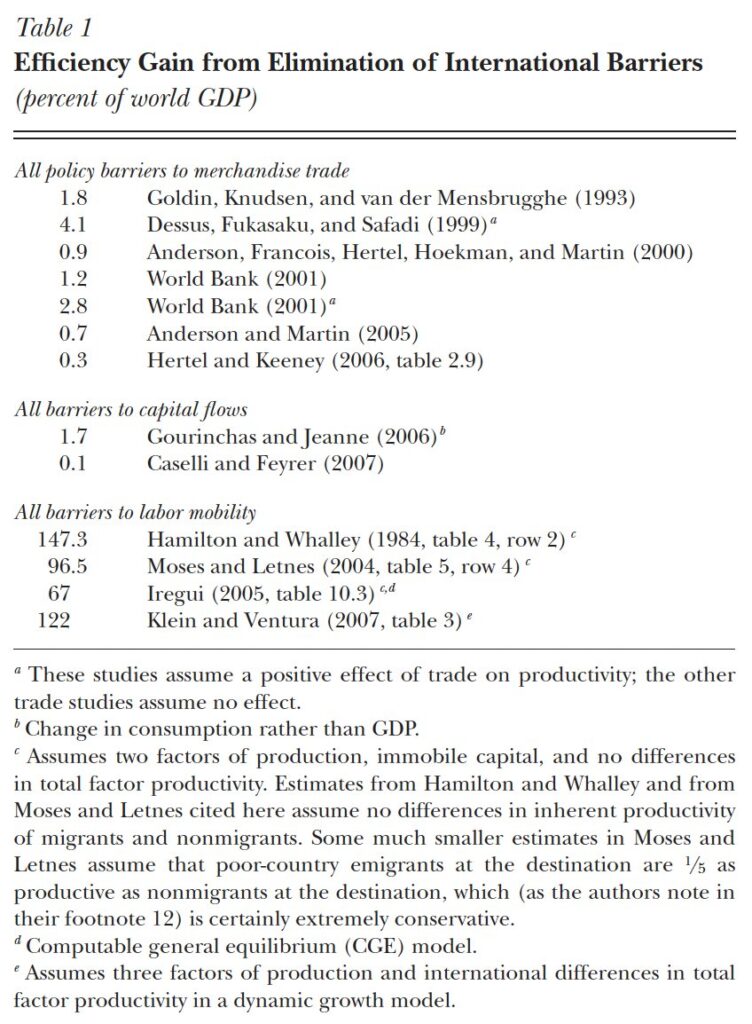
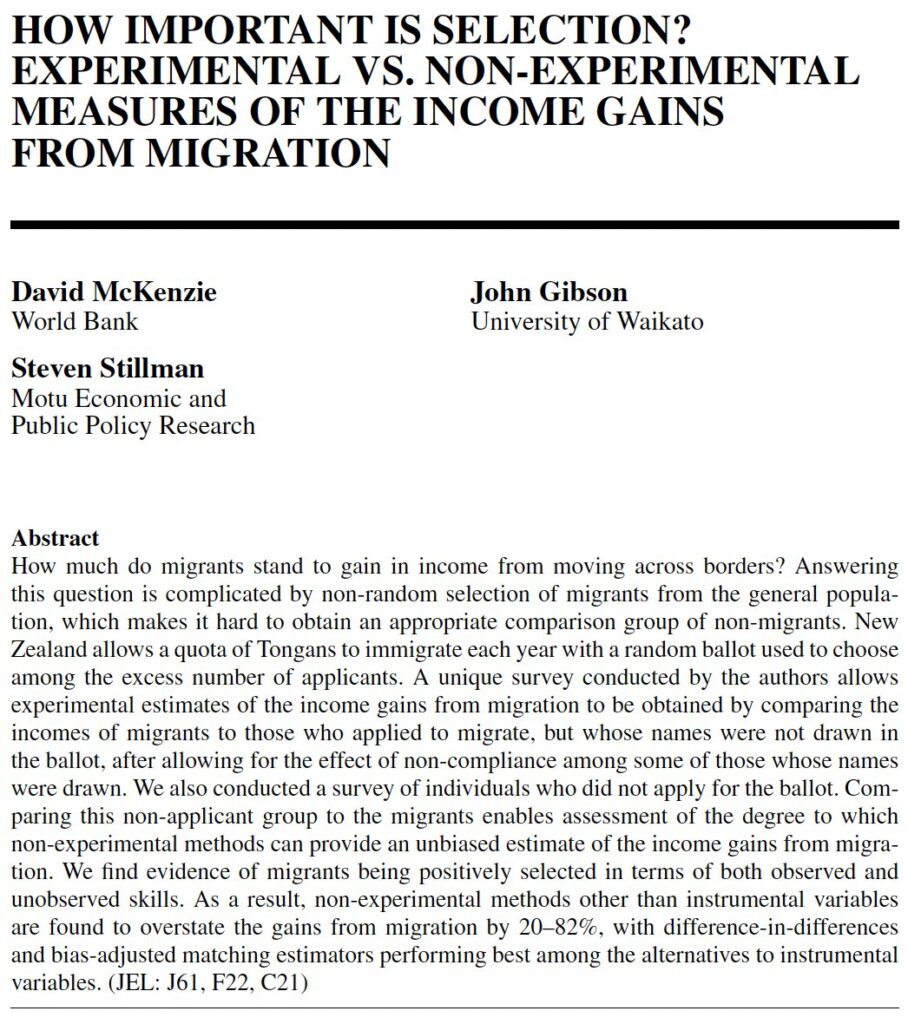
How to make international migration feasible? My best answer is *educational* migration. So the goal of Malengo.org is to facilitate that. We’re starting with “easy” countries: Uganda & Germany. We’ll expand later.
Why educational migration, and why these countries?
First, educational migration is *welcome* in many rich countries, which often face severe shortages of skilled labor, and immense pressure on their social systems from their aging societies. For example, Germany started a push to internationalize its universities in 2013. Relatedly: getting German student visas for our students this year was *incredibly* easy.
Second, educational migration combines the returns from migration with those from education. (They’re not quite as large; but nothing is, as far as I can tell.)
Third, there is likely a large unmet demand for this kind of migration: the pathways are opaque; and even though the returns are massive, so is the up-front financial investment. For example, Germany wants you to have EUR 10,332 in a locked bank account to issue a student visa.
Finally, the “brain drain” argument has always been patronizing, but more recently it has also been shown to be likely incorrect: some migrants return; and migration routes create remittances, FDI, and incentives to invest in human capital. A “brain gain” effect!
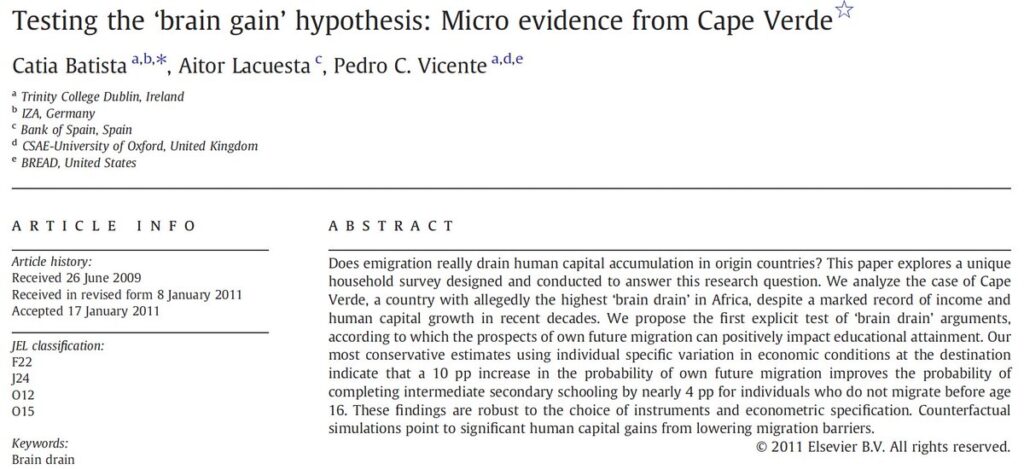
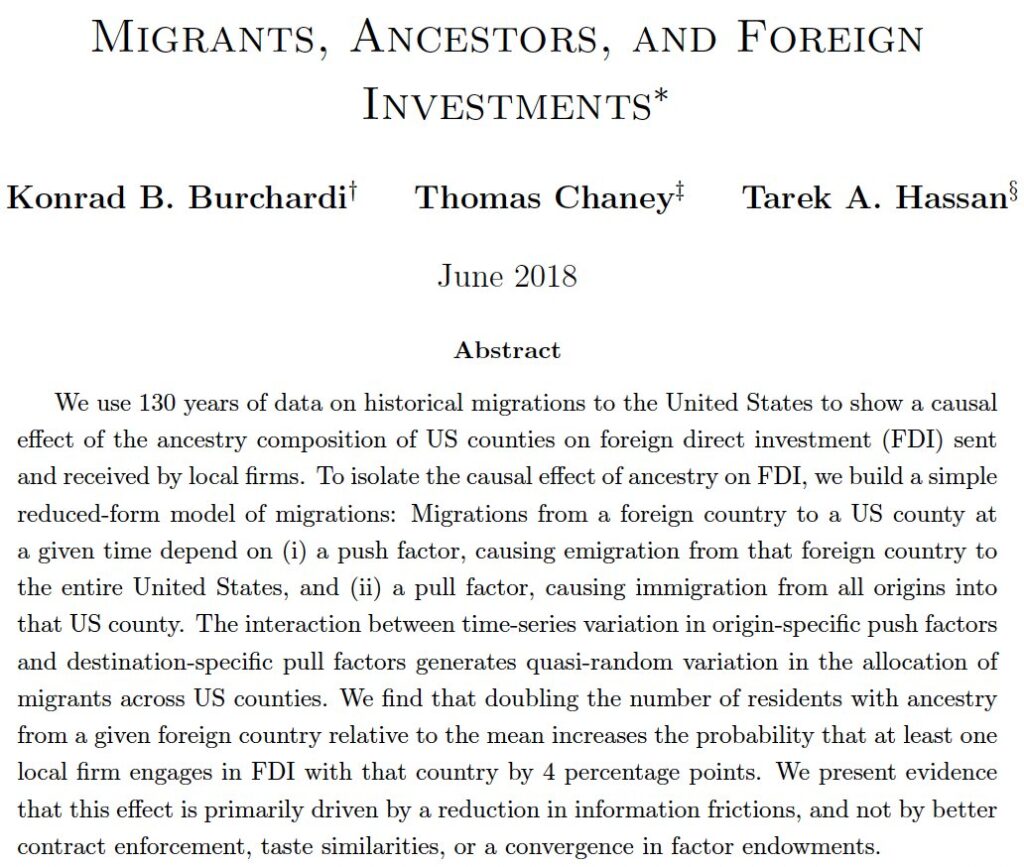

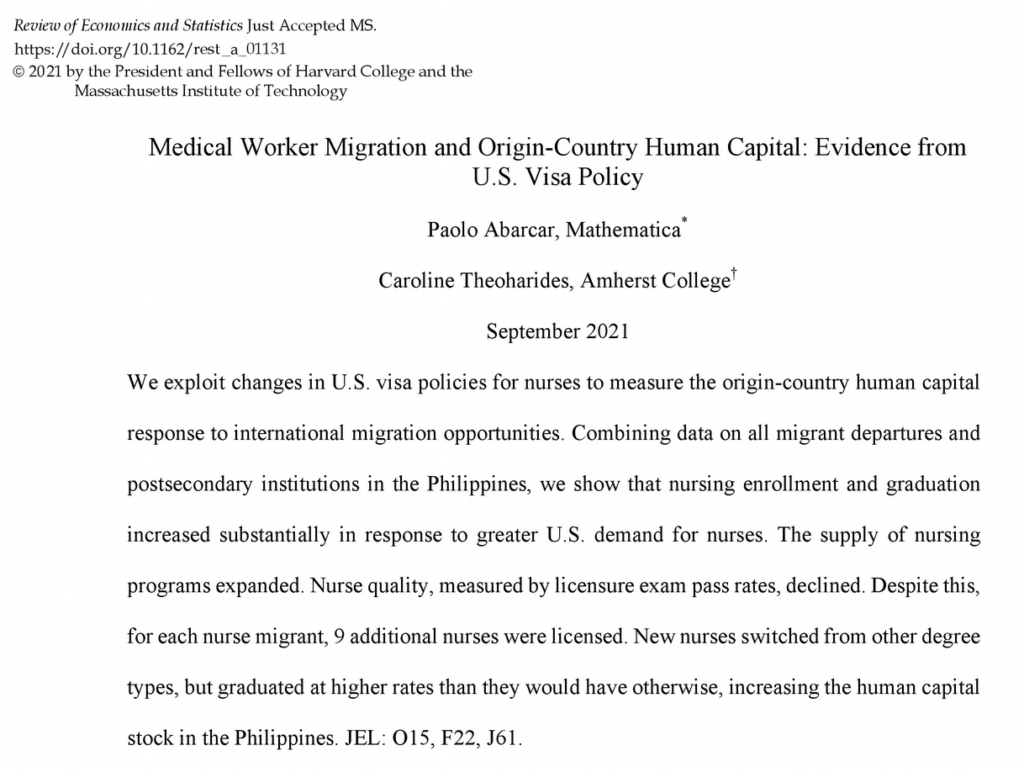
Why Germany?
1. Growing number of BA programs taught in English
2. Many of them “open admission” (ie easy to get in)
3. NO TUITION FEES. Even for non-EU students.
4. Low cost of living
5. Good earnings prospects
But Germany is just the start – I hope we’ll expand soon.
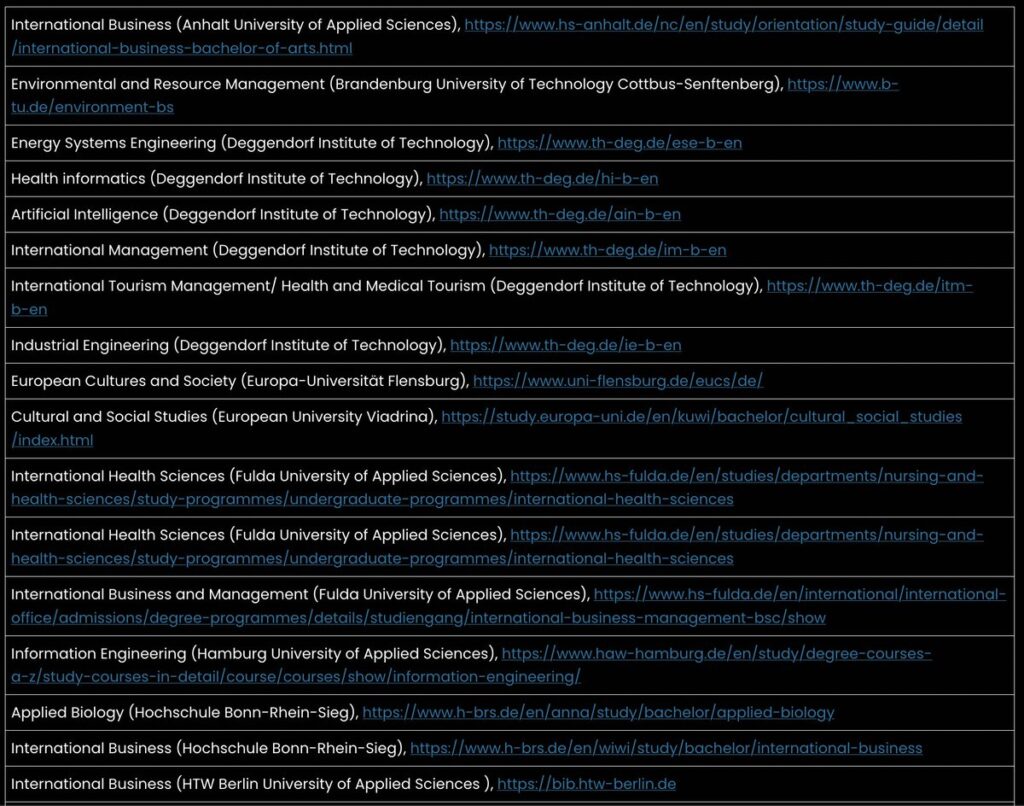

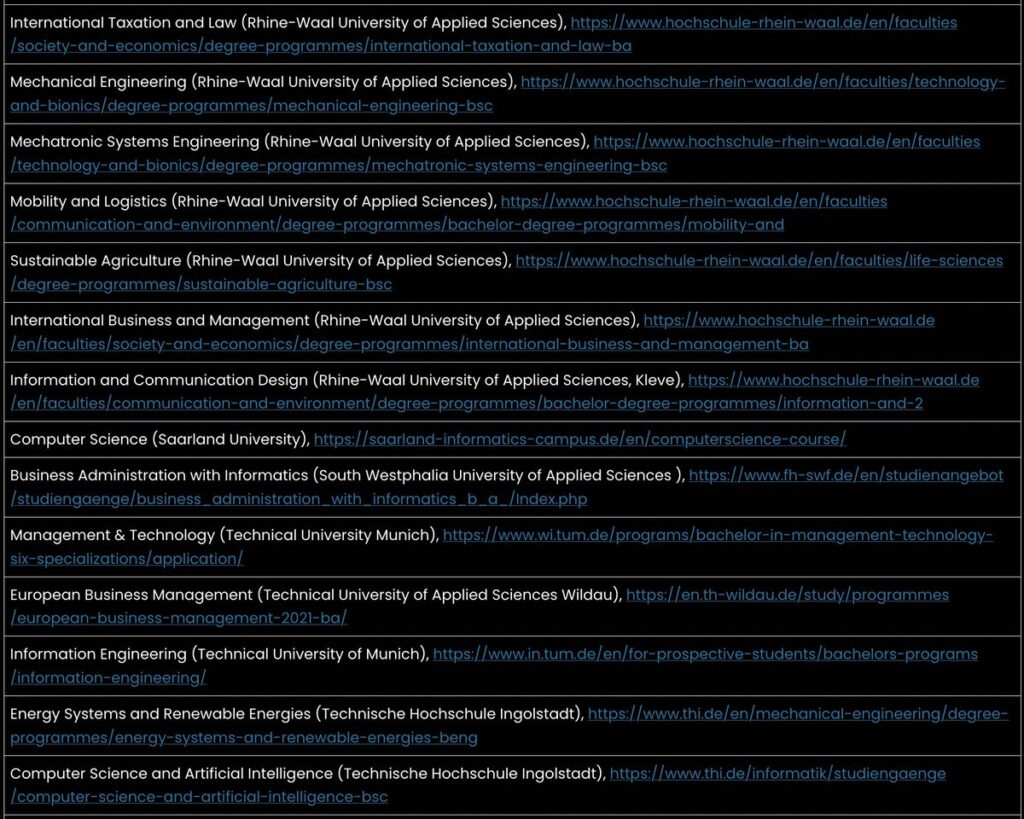
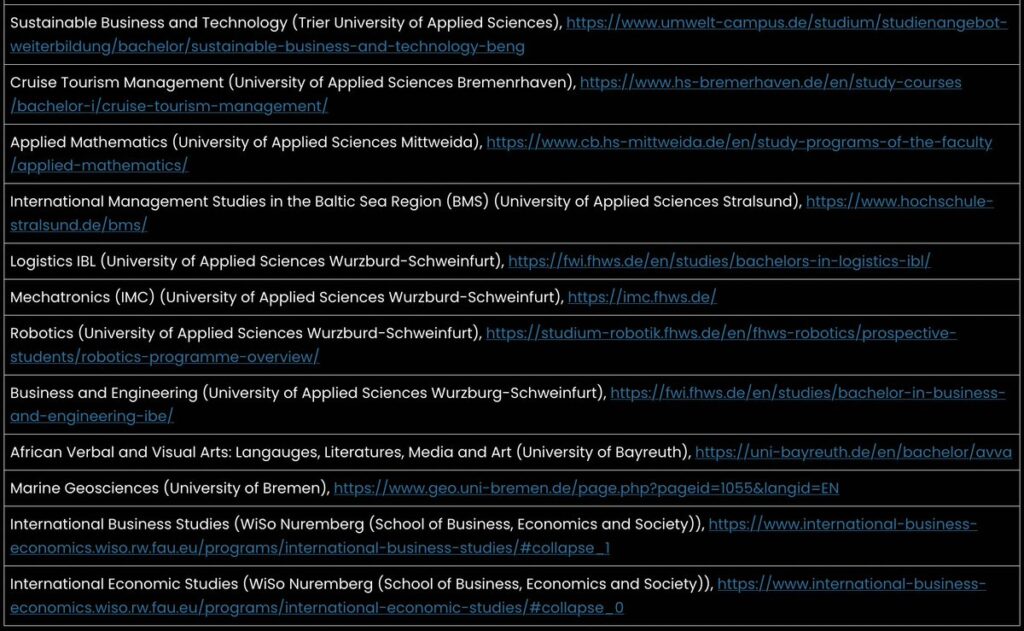
Why Uganda?
1. High levels of poverty
2. Good secondary school system, with relatively high and growing graduation rate
3. The secondary school certificate is recognized for university entry in Germany.
But again, that’s just the start – hope to expand to other countries soon.
We announced the first round in June. Selection was based on:
1. Low wealth. This is not a program for the elite.
2. Scholastic achievement. But not too demanding: it’s also not an elite program in this regard. The IKEA of higher education!
3. For those above the bar, a lottery.
The lottery fulfills two functions. First, it’s fair: Everyone deserves this opportunity, not only those with the highest grades. Those who don’t win can re-apply the year after. Second, it allows us to assess the program impact later; it’s a built-in RCT.
We had 121 applications made 10 offers, and 7 of these students are now in Germany studying! (One chose not to take up, another 2 didn’t get the required TOEFL scores, but will try again this year.)
So far, they seem to enjoy it! We have weekly calls with them, and in addition each student has a personal mentor who helps them adjust. (Many thanks to the many @studienstiftung alumnae/i who are volunteering for this.)
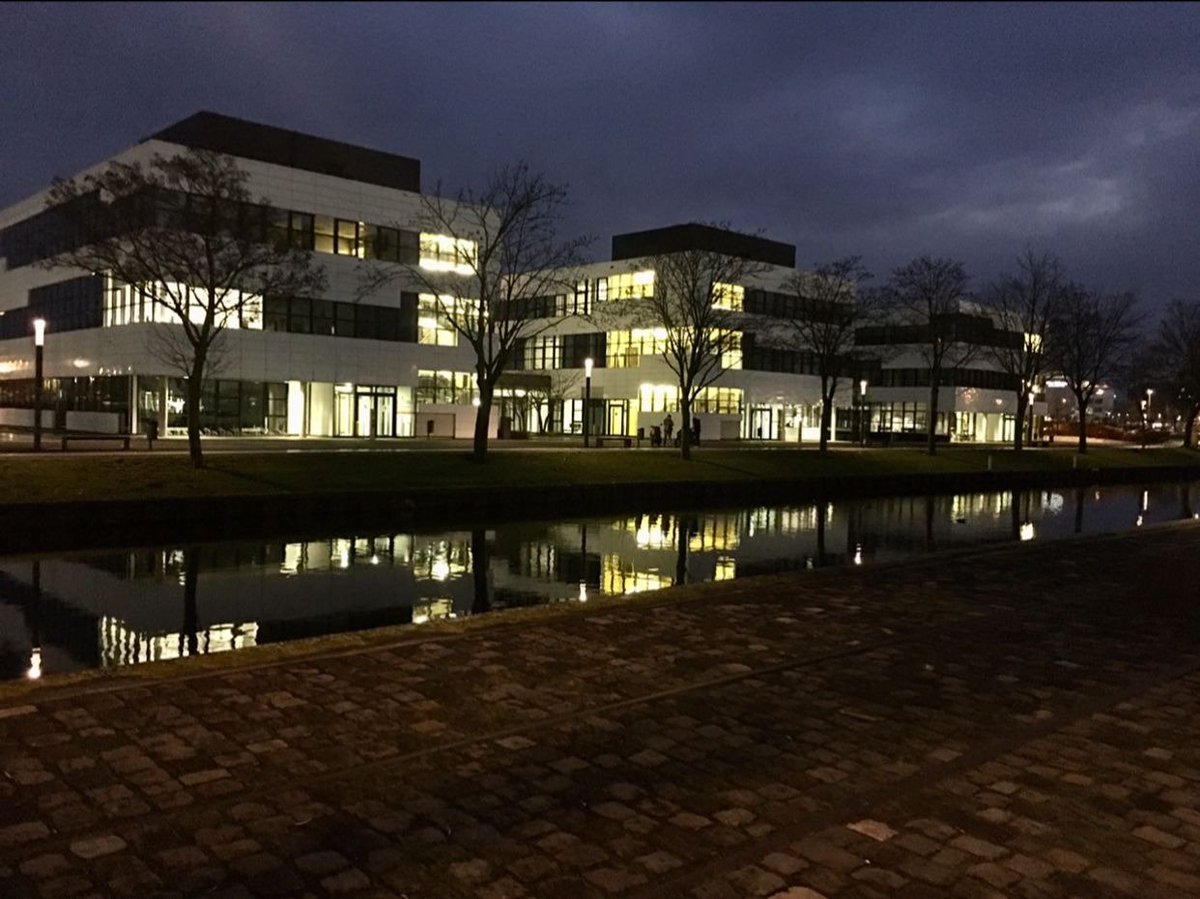
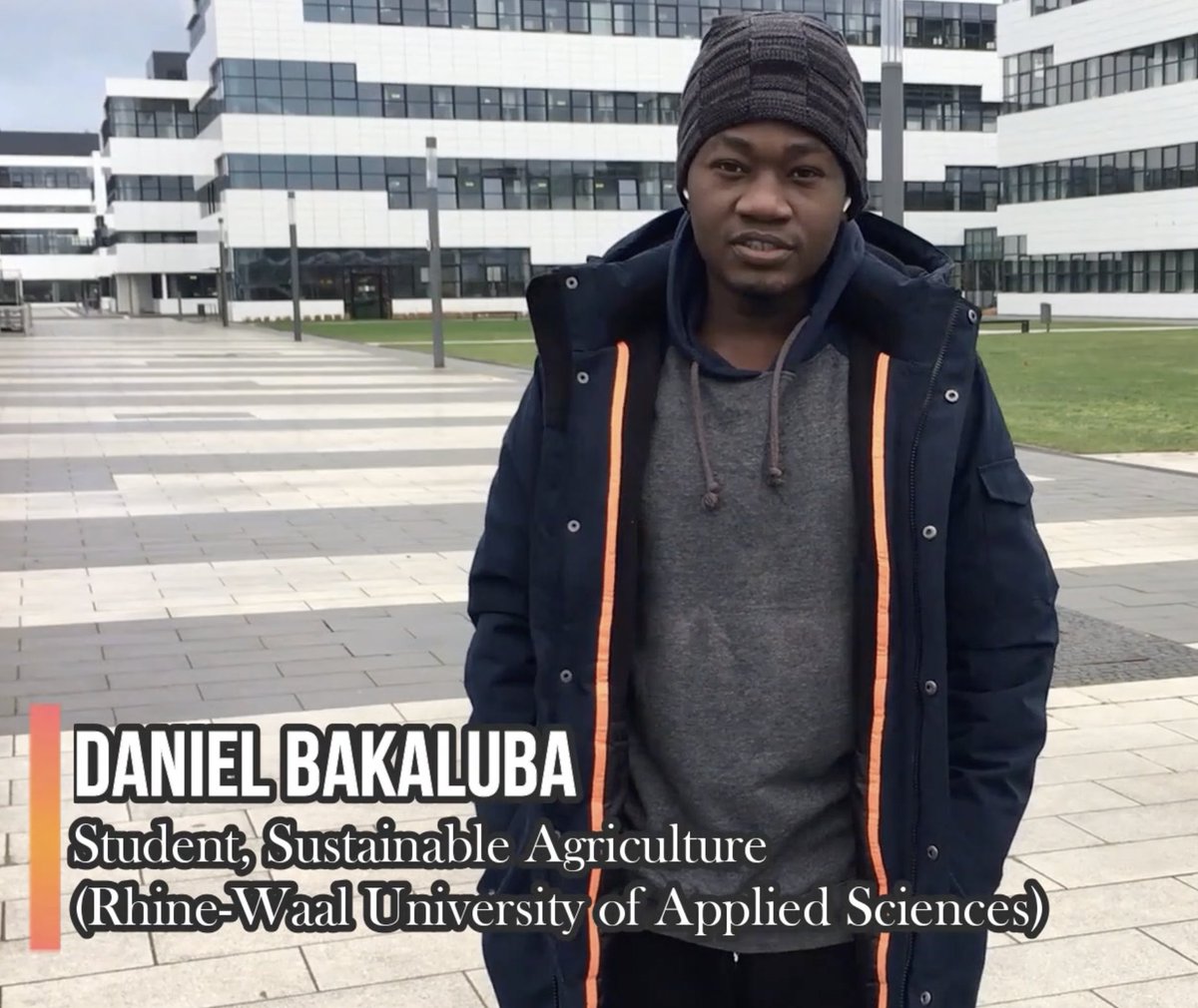
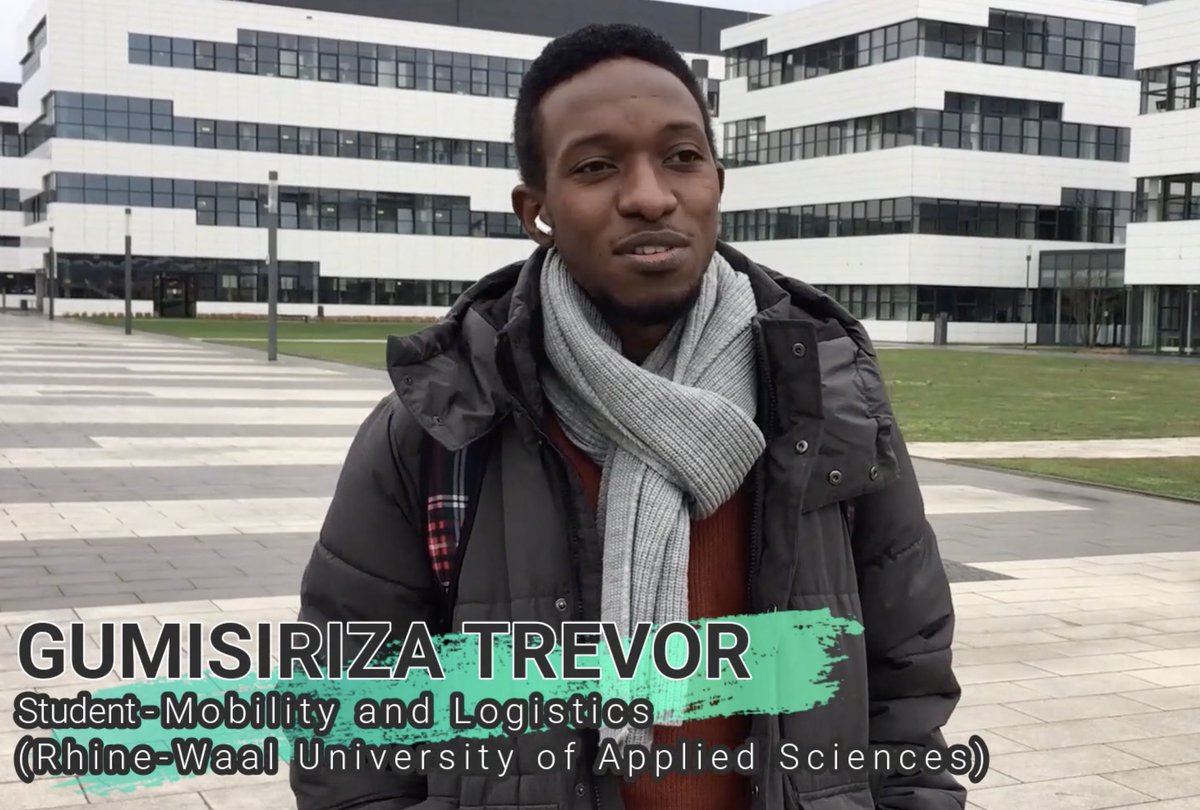
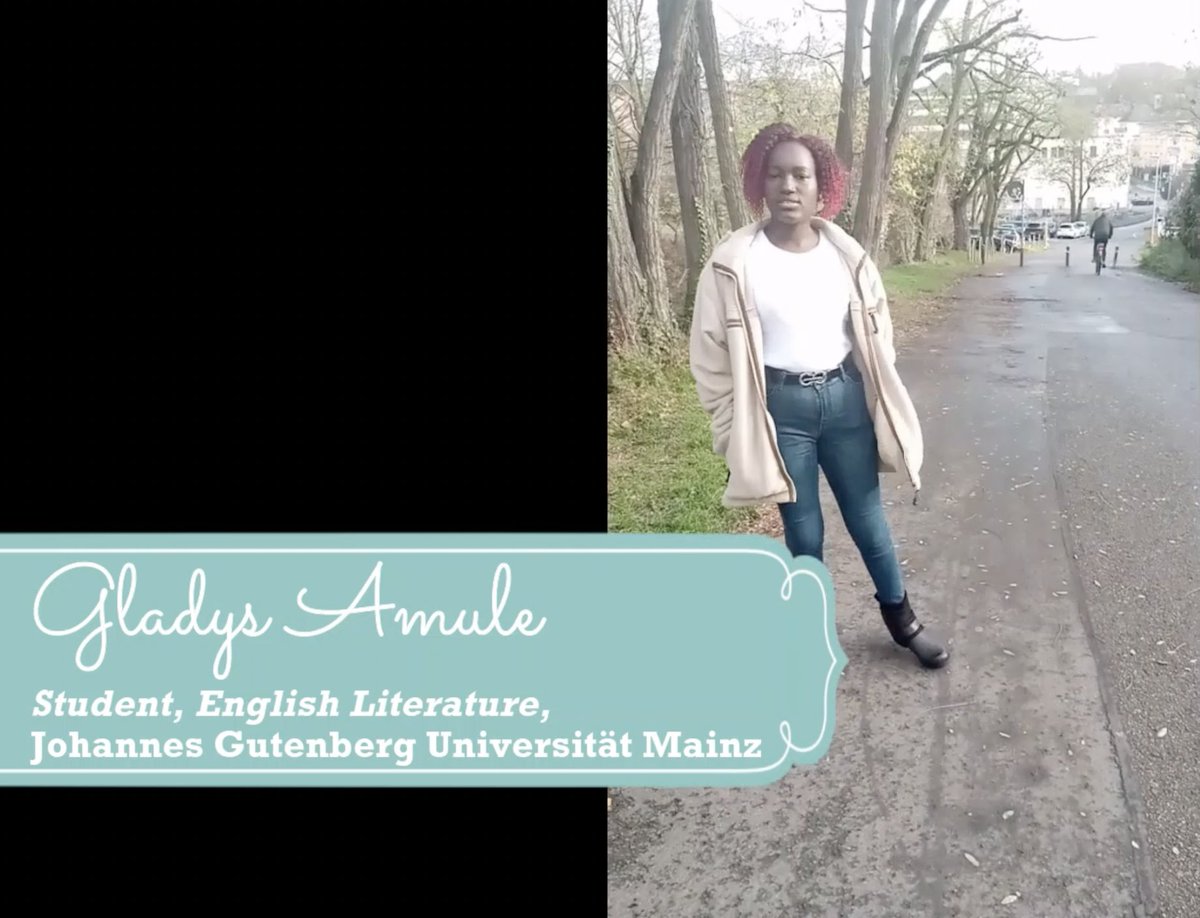
What’s the likely impact? My estimates suggest a ~1,500% effect on income after 4 years, and an internal rate of return of ~21% over 10 years. This compares favorably to the IRR of cash transfers over this period, which is likely around 2%. Details here.
What does it cost? The program costs EUR 12,000 per student; this covers applications, travel, and Y1 living expenses. After that, students have to work on the side. Part-time jobs are legal, widely available, and pay enough to live on. Three of our 7 students already found one.
How to make it sustainable? Through income-share agreements (ISAs): after graduation, students contribute 20% of their salary to future students for 10 years. Importantly, they only contribute if they earn >EUR 22k/year (even if they return to UG), and never pay back >EUR 48k.
In expectation, each student will finance 1.1 future students: this allows the program to grow over time. It also means that donations support not only the students who benefit from them this year, but also future generations.
Partners & advisors: @BusaraCenter, @CHANCEN_eG, @jainfamilyinst, @m_clem, @Sidhya26, @StynesMichael,
@DrLydiahKBosire, @8B_AfricaEdu.
Lorem ipsum dolor sit amet, consectetuer adipiscing elit aenean comm odo ligula eget dolor massa Lorem ipsum dolor sit amet, consectetur adipiscing elit. Aenean egestas magna at porttitor vehicula nullam.
- Choose your favourite cause
- Register to our website !
- Donate the amount you like
- Stay tuned about cause





